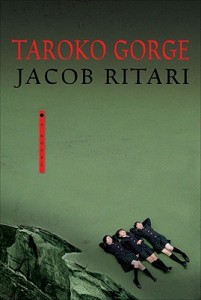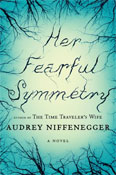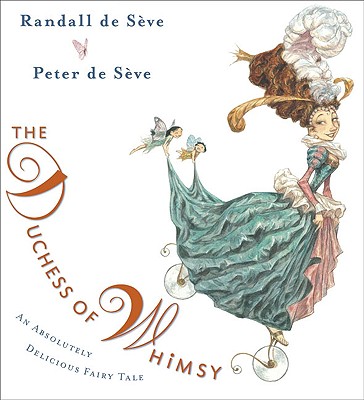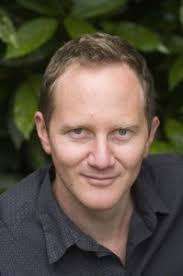
(This review and author interview done by Marilyn Dahl is shared with us with kind permission from
Shelf Awareness.)
How often have you heard people say they are spiritual but not religious? If you are a professor of religion and a former parish priest--if you are Barbara Brown Taylor--you have heard this quite often. She thinks what they are really saying is that they have a longing for more meaning, more feeling, more connection, more life. Even "religious" people have this longing, and while they are "happy to use inherited maps for some of life's journeys... they too can harbor a sense that there is more to life than they are being shown. Where is the secret hidden? Who has the key to the treasure box of More?"
People will go to some extraordinary lengths to find this treasure: hours of prayer and fasting, treks to India or pilgrimages to Medjugorje. The last place most people look is right under their feet, "in the everyday activities, accidents, and encounters in their lives." What spiritual significance could ordering a latte have? A fender bender? Dusting, going to the vet or being frisked at the airport? This is what Taylor addresses in this marvelous mapbook for a spiritual journey. She says that most of us cannot see the red X that marks the Spot because we are standing on it, and there is no path to God apart from paying exquisite attention to our ordinary lives in the real world.
But how? Certain practices have a long history in all religions--prayer, fasting, meditation, pilgrimage--but there are others, and all accomplish the same thing at the end: putting ourselves in a position to experience the divine. Practices that come from the ordinary and universal, like paying attention, encountering others, saying no, feeling pain, even getting lost.
Taylor begins with the practice of waking up to God and realizing that God doesn't see the world in the same way we do. "What if God can drop a ladder absolutely anywhere, with no regard for the religious standards [of those] who have made it their business to know the way to God?" She could not possibly say. But she does know that the house of God stretches from one end of the universe to the other, and she is not in charge of this house, she has no say in who is in or who is out. And she does know that "earth is so thick with divine possibility that it is a wonder that we can walk anywhere without cracking our shins on altars." This is beginning of wisdom--being open to the altars, being open to the Voice.
The first step is to pay attention, and to pair attention with reverence. "Reverence requires a certain pace. It requires a willingness to take detours, even side trips, which are not part of the original plan." But start small. Taylor writes this about a saltmarsh mosquito:
"See those white and black striped stockings on legs thinner than a needle? Where in those legs is there room for knees? And yet see how they bend, as the bug lowers herself to your flesh. Soon you and she will be blood kin. Your itch is the price of her life. Swat her if you must, but not without telling her she is beautiful first."
Or pay attention to people who are annoying, people you are short on reverence for. Look at the human being instead of the cell-phone-talking annoyance. Bless the woman--it will shift your equilibrium. Look a clerk in the eye, speak to him and, because you noticed him, neither of you will be the same again. Pay attention to the chicken truck on the freeway in front of you. Think about the chickens the next time you eat them. "These doors open onto the divine as surely as showers of falling stars do. To open only the doors with stars on them while leaving shut the doors covered with chicken feathers is to live half a life, with half a heart."
Getting lost is a holy art to Taylor--God does some of his best work with people who are seriously lost. Our times in the wilderness are the times that change us. They can be times we wander and discover, or times we are flat on our back and need the help of others, or times when we have to trust or perish. Taylor keeps her eyes open for opportunities to get slightly lost, building up the muscles necessary for radical trust, trust that is necessary for us all, since the question is not why do bad things happen to good people, but
when?
For now, we must open our arms to what is, instead of waiting for what should be. Pay attention to the spot we're standing on, to the people around us. "The most ordinary things are drenched in divine possibility. Pronouncing blessings upon them is the least we can do." With wisdom, grace and wit, Barbara Brown Taylor has given us a blessing with this honest and beautiful book.

* * *Barbara Brown Taylor: 'Discovering the Sacred in Daily Life
Barbara Brown Taylor's first trade book, Leaving Church, received widespread critical acclaim; her subsequent book, An Altar in the World, is now reaching an even wider audience. An Episcopal priest since 1984, Taylor served urban and rural parishes before leaving parish ministry to become a teacher in 1998. While she still preaches and teaches at churches and universities across the country, she writes more and more for the "spiritual but not religious" crowd. An editor-at-large for the Christian Century and a contributing editor for Sojourners, she lives on a working farm in Habersham County, Ga., with her husband, Ed.
 Taylor wrote An Altar in the World in what she describes as the hut of her dreams, which she and Ed built after they finished the house of their dreams. "A ten-minute walk from my front door, it sits on a little knoll above the Chattahoochee River. It has no plumbing or electricity, so all I can hear when I am there are the crows on the roof and the deer snuffling through the leaves. The siding is unfinished pine, the shingles are cedar, and the flooring is made of heart pine from the oldest house in Dem
Taylor wrote An Altar in the World in what she describes as the hut of her dreams, which she and Ed built after they finished the house of their dreams. "A ten-minute walk from my front door, it sits on a little knoll above the Chattahoochee River. It has no plumbing or electricity, so all I can hear when I am there are the crows on the roof and the deer snuffling through the leaves. The siding is unfinished pine, the shingles are cedar, and the flooring is made of heart pine from the oldest house in Dem orest, Georgia. But the oldest wood in the hut is the heart pine edging around the stacked stone fireplace, taken from the old slave gallery (now choir loft) at Grace-Calvary Episcopal Church in Clarkesville, where I served as pastor from 1992–1997. I have everything I need there. When I go there, I can hear my heart and the heart of the world beating at the same time."
orest, Georgia. But the oldest wood in the hut is the heart pine edging around the stacked stone fireplace, taken from the old slave gallery (now choir loft) at Grace-Calvary Episcopal Church in Clarkesville, where I served as pastor from 1992–1997. I have everything I need there. When I go there, I can hear my heart and the heart of the world beating at the same time."
After publishing 10 books of sermons and essays, why did you decide to write Leaving Church: A Memoir of Faith, a very personal book? Leaving Church describes my decision to leave parish ministry in 1997. That decision changed my language, my work life, my understanding of God, even my clothes. For a while I didn't know how to talk because my life had changed so much. I had been a priest 24/7, but when I left church, all of my bedrock assumptions went under revision. I got notes and letters from people saying they were sorry I had "left the ministry," which I had not done. Once I got my voice back, I decided to write the book I wish I could have read at the time. It took years to write it, even after I had found a new voice. I think what most people don't fully realize about freedom is how scary it can be, because it includes the freedom to fail as well as the chance to discover new wide open spaces.
We heard that you got some backlash from Leaving Church.
I heard that too, but not directly. Most of the mail I get comes from readers who could have written the book themselves. I did hear from two friends who are still active in ministry--one who was angry with me and one who I think felt betrayed. What I have come to realize is that the title of the book alone was frightening to many church people. How could someone "on the team" leave? The title was provocative, especially for people who are afraid their mainline churches are failing. As a side note, one interesting thing I have learned about Leaving Church from readers is that it is as much a midlife book as it is a book about church. I love the way a reader can teach me what my work is really about!
Did those reactions have anything to do with writing An Altar in the World?
Once I had dealt with the grief of leaving parish ministry, I wanted to write a more upbeat book. So I remembered the question an Episcopal priest asked me when he invited me to speak to his church: "Come tell us what is saving your life now." That was the set-up question for Altar for me. I wanted this book to be a practical, day-by-day guide to the kinds of practices that might save a person's life. I also wanted to try to write for the "spiritual but not religious" crowd this time and not just the church crowd. Part of what I learned from younger readers is that I am still a pretty religious person, because I still rely on the wisdom of a particular religious tradition in my spiritual practice.
Do you have daily rituals or certain spiritual practices you follow?
Yes, I do, but I am afraid they would be a great disappointment to most religious people! Brother Lawrence is my patron saint, since he taught me to base my spiritual practice in daily life. Simply, that means the practice of engaging every person, every created thing, every moment as if it were a moment of actual communion--one in which the ordinary and the divine come together in a transforming way. I wish I had the discipline of someone like Phyllis Tickle, who prays the daily offices every day--and who has written brilliantly about that. But I do have daily tasks that keep me focused on divine possibilities: taking care of animals who depend on me for their daily bread, writing words that I hope will sound true to someone else, getting up earlier than anyone else in order to engage in the discipline of silence. They all have a sacramental quality to them. If there is one thing I am up to in this book, it is to erase the so-called line between the sacred and the secular, the earthly and the heavenly--because that line renders so many things negligible in the human search for the divine
How does one discover the sacred in daily life?
Imagine it is so.
Expect it is so.
Act as if it were so.
Or, to put it another way, I think it's an imaginative exercise before it is a practical exercise. But the more you act from the faithful imagination--the more you practice faith--the easier the discovery becomes.
People are willing to travel great distances, spend money, go through a lot to find "the key to the treasure box of More." Your answer is to start where you are. How do we do that?
I know this is a predictable answer, but the whole book is my effort to answer that question. The short answer is that I have begun to question the utility of "journey" as a metaphor for the spiritual life. Now that I'm in the last third of my life, I realize that when I speak of life as a "journey," I can make the mistake of thinking that I am not "there" yet--not yet where God wants me to be, not yet with the people God wants me to be with, not yet doing the job God wants me to do, whatever. It can become a way of divorcing myself from my real life now. Who am I with right now? What piece of earth am I standing on right now? These become the important questions, as I try to make meaning right where I am.
You say your book is a field guide, not a curriculum. How do we use a field guide, when we are so used to starting with lists of do's and don'ts?
Can I go to the Bible here? The day I learned to read the Bible as a field guide was a liberating day. For ages, I accepted it as a manual of do's and don'ts--which I really needed when I was first learning the ropes of faith. Eventually, though, I found that reading it that way shut down as many questions as it answered for me.
Gradually it occurred to me that the Bible was less a manual than it was a collection of writings by people who had experienced sightings of the divine. Some of those sightings occurred under terrifying circumstances. Others were very comforting. God was silent in some of them, and active in others. Finally I decided that the Bible was less interested in telling me what to see than it was in teaching me how to see. So I treasure the Bible as my sacred field guide. Reading it is how I have learned to look at the world with the eyes God gave me.
The chapter on the practice of getting lost is especially appealing. We can be lost in so many ways--job, home, illness, depression, to say nothing of world tragedies like Haiti. How can we be open to being lost?
That really is the question--how can we be open?--since we don't really have a choice about whether or not we will get lost. We will. To go back to something I said earlier, I think the do's and don'ts can save your life in the wilderness. Don't step on snakes. Do drink water every chance you get. But I also think that learning how to find your way through unmapped territory requires a set of skills that can't be distilled into a list of do's and don'ts. For that, it helps to have had a little practice. So in my chapter on getting lost I explore some of the non-life-threatening ways some of us can get learn to get lost a little ahead of time, as a way of practicing the skills we may need for bigger adventures later on.
You say that many of the people in need of saving are in churches, because they think God sees the world the same way they do. It's similar to people who say "it's God's will" when something conforms to their thinking, but don't say that's so when it doesn't.
Right. We hear plenty about the spiritual fruits of success, but very little about the spiritual fruits of failure, especially from those who are too ashamed to speak--or write--about their failures. Who has the right to say "it's God's will?" The sufferers themselves, maybe, but not the onlookers. Onlookers are free to think whatever they think, but they should keep their voices down. Since you brought up Haiti earlier, I will now fail to take my own advice and say something about what I have seen going on there--not just the unspeakable tragedy, but also the looks on the faces of those pulled alive from the rubble. They all look like Lazarus! Those pictures are really all I have since I have not been there myself, but they are like icons to me--of how closely wedded gratefulness is to grief.
Speaking of Haiti, or homelessness in America, say, how does what you are writing about translate into something larger?
I guess I will have to leave that translation up to my readers. I do know that facing my own lostness on a regular basis opens me up to the lostness of other people. But I have never pretended to be much of an activist. I mean, I live in the country and keep chickens! So I am both dependent on and grateful for people who live more globally than I do--who are more involved on a day-by-day basis with the marginalized, the accused, the deported, the abused. All I have ever been any good at is saying what is true for someone who wants to love God with all her heart and soul and mind, and her neighbor as herself--and who falls short most of the time. Maybe the wanting is the thing. Maybe the trying is the thing. I sure hope so.

 WILLIE MAYS The Life, the Legend By James S. Hirsch
WILLIE MAYS The Life, the Legend By James S. Hirsch 










































 Taylor wrote An Altar in the World in what she describes as the hut of her dreams, which she and Ed built after they finished the house of their dreams. "A ten-minute walk from my front door, it sits on a little knoll above the Chattahoochee River. It has no plumbing or electricity, so all I can hear when I am there are the crows on the roof and the deer snuffling through the leaves. The siding is unfinished pine, the shingles are cedar, and the flooring is made of heart pine from the oldest house in Dem
Taylor wrote An Altar in the World in what she describes as the hut of her dreams, which she and Ed built after they finished the house of their dreams. "A ten-minute walk from my front door, it sits on a little knoll above the Chattahoochee River. It has no plumbing or electricity, so all I can hear when I am there are the crows on the roof and the deer snuffling through the leaves. The siding is unfinished pine, the shingles are cedar, and the flooring is made of heart pine from the oldest house in Dem orest, Georgia. But the oldest wood in the hut is the heart pine edging around the stacked stone fireplace, taken from the old slave gallery (now choir loft) at Grace-Calvary Episcopal Church in Clarkesville, where I served as pastor from 1992–1997. I have everything I need there. When I go there, I can hear my heart and the heart of the world beating at the same time."
orest, Georgia. But the oldest wood in the hut is the heart pine edging around the stacked stone fireplace, taken from the old slave gallery (now choir loft) at Grace-Calvary Episcopal Church in Clarkesville, where I served as pastor from 1992–1997. I have everything I need there. When I go there, I can hear my heart and the heart of the world beating at the same time."